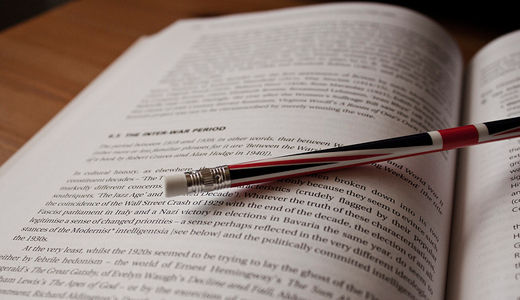
Earlier this month, The New York Times published a guest editorial by mystery author Scott Turow. Turow titled his piece, ‘The Slow Death of the American Author’ and opened with a lament that, as a result of a reversal of a prior court decision, foreign publishers would now be able to import cheaper editions of American literary works. Turow goes on to decry the various methods, both legal and otherwise, that authors works are reprinted, loaned and scanned that whittle away at their royalties. Before he concludes, Mr. Turow reaches deep down into an intellectual swamp and dredges up that old reliable New York Times approved canard of anti-communism. He comes up with a most curious observation. Last October, Mr. Turow informs us, he was in Moscow where he met with authors who described, as he put it, “the sad fate of writing as a livelihood in Russia.” The myopic Mr. Turow then concludes that “Soviet-style repression is not necessary to diminish authors’ output and influence. Just devalue their copyrights.”
Soviet style repression? Mr. Turow should double check his calendar. The fate the Russian authors with whom he spoke were being expressed 20 years after the collapse of the USSR. In fact, one could describe the ‘sadness’ of trying to make any living at all in the Russia of today, regardless of your chosen endeavor.
It was the socialist system of the USSR that enabled people to adjust the focus of their lives from bread and shelter to education and erudition. The USSR was known as one of the most literate societies in the world and it was this focus on education – provided free – that allowed the Soviet people to delve into the works of such Russian authors as Tolstoy and Pushkin. It was not just the Russian classics that were brought to a wide audience however. The Soviet Union fostered and encouraged new talents, such as Mikhail Sholokhov who would thrill the world with his epic, ‘And Quiet Flows the Don’ and simultaneously amuse, educate and tug at the heartstrings of the reader with his vivid, ‘Virgin Soil Upturned’. Sholokhov did not turn his back on the society that allowed his talent to blossom. He was a proud member of the USSR Supreme Soviet and the Communist Party of the Soviet Union Central Committee. The whole world would go on to recognize his talent, and in 1965 he was awarded the Nobel prize for literature. I’ll bet Mr. Turow wishes he had one of those.
When it comes to repression of the author Mr. Turow might find more fertile ground to explore in the capitalist countries, such as Turkey which revoked the citizenship of poet Nazim Hikmet in 1959 for doing nothing more than supporting the cause of the working class. Mr. Hikmet would have to flee to the ‘repressive’ USSR in order to continue his work and stay out of the capitalist prisons of his birth country. His grave in Moscow remains a place of pilgrimage for Turkish patriots and lovers of literature.
Perhaps someone should remind Mr. Turow that it was the capitalist Chilean homeland of famed poet Pablo Neruda that forced him to flee through a mountain pass to escape the repressions of the government there.
Some of Mr. Turow’s works have inspired feature films. It might do him good to look back upon the shameful Hollywood blacklist, in which famed screenwriters like Lester Cole, the man behind such classics as Objective Burma! (1945) would be branded and cast aside, their talent and output no longer welcomed by an industry in the grip of fear mongers and the American ultra-right.
In the end we might suggest that Mr. Turow simply expand his reading list. Perhaps he could include the works of African-American poet Langston Hughes who, in his poem, ‘Poet to Patron,’ described the antagonism between capitalism, creativity, and culture this way….
What right has anyone to say
That I
Must throw out pieces of my heart
For pay?
For bread that helps to make
My heart beat true,
I must sell myself
To you?
A factory shift’s better,
A week’s meager pay,
Than a perfumed note asking:
What poems today?
Photo: gacabo/Flickr (CC)












Comments